Queen’s children, King Charles, Princess Anne, Prince Andrew, Prince Edward stand guard over coffin during vigil
A devastated Princess Anne has made royal history by joining her brothers in the mourning tradition known as the Vigil of the Princes.
World
Don't miss out on the headlines from World. Followed categories will be added to My News.
A stoic Princess Anne has honoured her mother, the Queen, alongside her three brothers in a poignant vigil in Edinburgh.
The devastated Princess Royal made history by becoming the first female member of the royal family to “stand guard” during the historic royal mourning tradition known as the Vigil of the Princes.
King Charles III, wearing a kilt, led his three siblings through the cathedral as they slowly walked in step with one another to their positions.
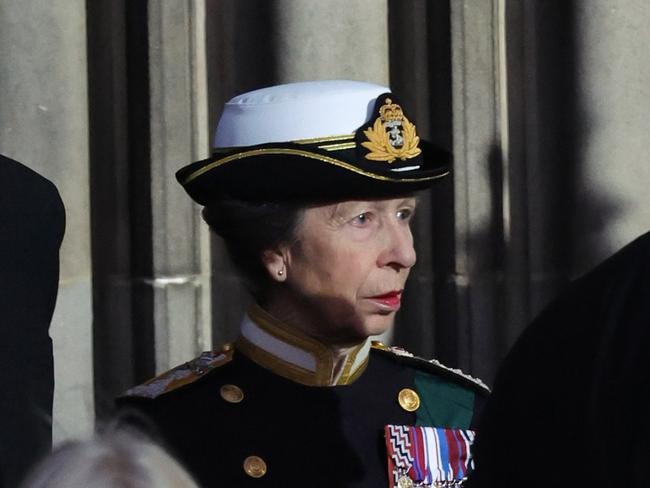
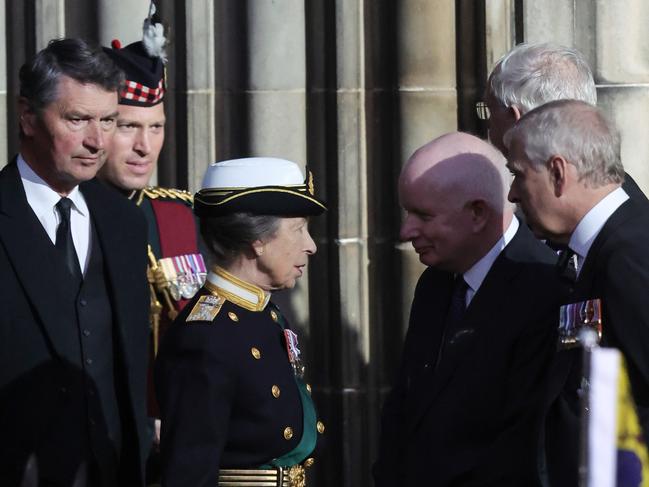
His Majesty stood at the head of his mother’s coffin, while Princess Anne and Prince Edward stood either side with Prince Andrew at the foot.
Mourners clapped the Queen’s children as they left St Giles Cathedral after the emotional vigil was performed.

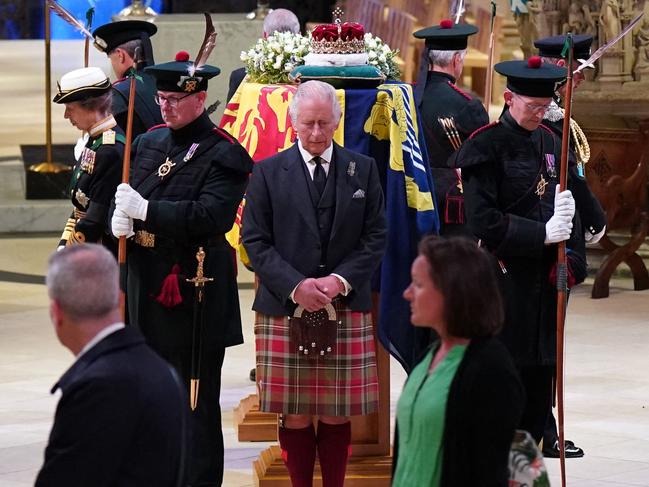
The Princess Royal, who emotionally curtsied to her mother’s oak coffin when it arrived at Holyrood Palace, was the first woman to take part in the traditional Vigil of the Princes.
It followed poignant scenes earlier when the siblings walked behind their mother’s coffin during a procession through Edinburgh.
The Vigil of the Princes tradition began in 1936 when the then King Edward VIII and his three brothers – Princes Albert, Henry and George – wore full military uniforms to stand guard at the coffin of their late father, King George V in Westminster Hall.
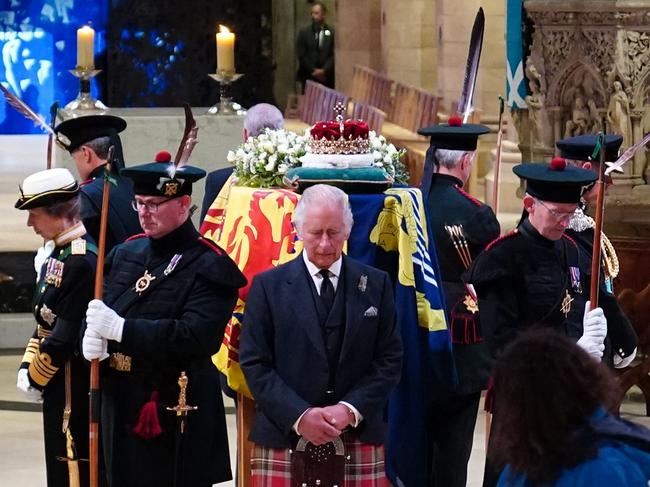
The Queen’s four children bowed their heads in a moving vigil over her coffin at Edinburgh’s St Giles Cathedral.
Mourners filed past in solemn silence as King Charles III, Princess Anne and Princes Edward and Andrew stood guard.
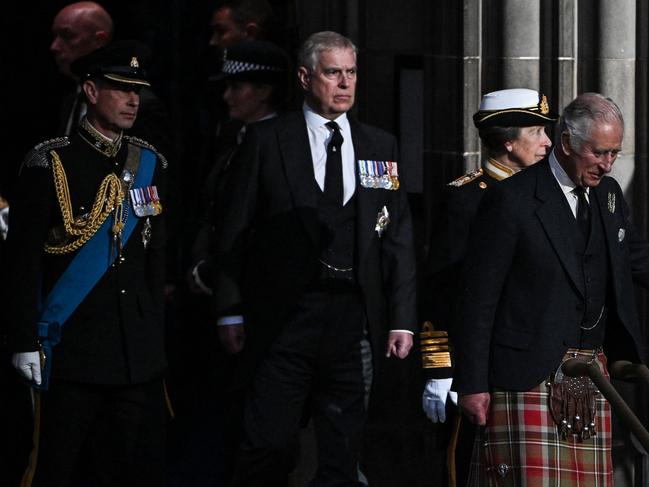
She may have been the Queen but to King Charles, sister Princess Anne, and younger brothers Princes Andrew and Edward – she was their “darling mama”.
For 15 minutes early this morning Australian time, the siblings stood guard around her coffin in the Vigil of the Princes ceremony, remembering not only her incredible 70 years of reign as monarch – but their own private times with their mum.
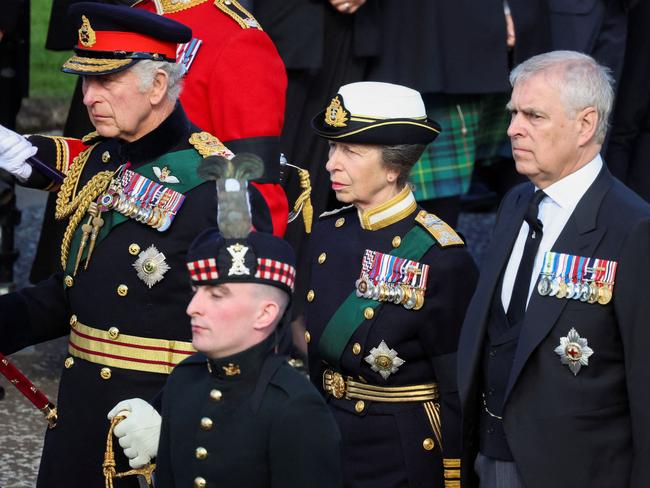
For the members of the public who happened to file past while the royals stood guard, the sight of seeing the Queen’s children in such a personal and intimate moment would have no doubt left many with a lump in their throats.
It followed a poignant procession through Scotland’s capital as King Charles led the coffin past thousands of well-wishers.
The journey from Holyroodhouse to St Giles Cathedral echoed the same journey she made 70 years ago after her coronation.
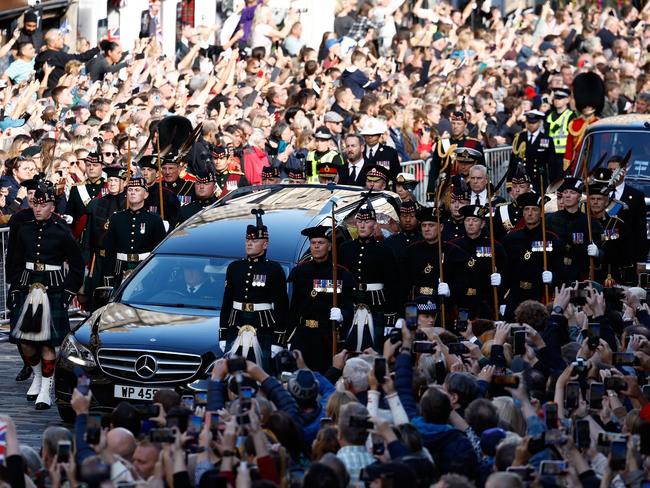
For King Charles, who has been crisscrossing the UK fulfilling his new duties as monarch, there has hardly been time to stop and remember his mother, who died on Thursday aged 96.
That poignant 15 minutes at St Giles Cathedral in Edinburgh, would have been a moment to reflect on his childhood, happy holidays at Balmoral, where his mother died, and the decades since when she has been there to advise and support him as heir to the throne.
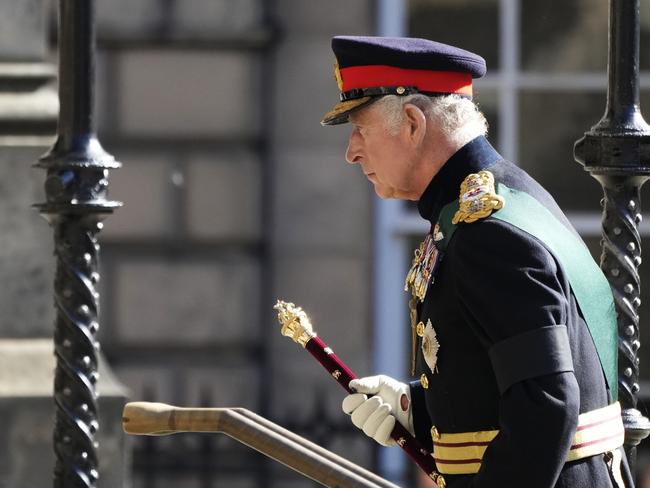
He and his siblings must also have spent some of that time remembering the loss of their other parent and “dear papa”, Philip, Duke of Edinburgh, who only died last year, aged 99.
The three princes would have also remembered the last time they stood vigil, for their “magical grandmother”, as King Charles referred to the Queen Mother, following her death aged 101 in 2002.
That was only the second time there had been a Vigil of the Princes following the death of a senior royal figure.
Then, her grandsons, King Charles, Prince Andrew, Prince Edward and David Armstrong-Jones, Viscount Linley, took over from the Royal Company Archers, who were guarding the coffin of their grandmother at Westminster Hall.
The vigil is a comparatively new tradition.
The first time it was held was for George V in 1936, when his sons Princes Albert, Henry and George stood guard in full military regalia at the four corners of his coffin, also at Westminster.
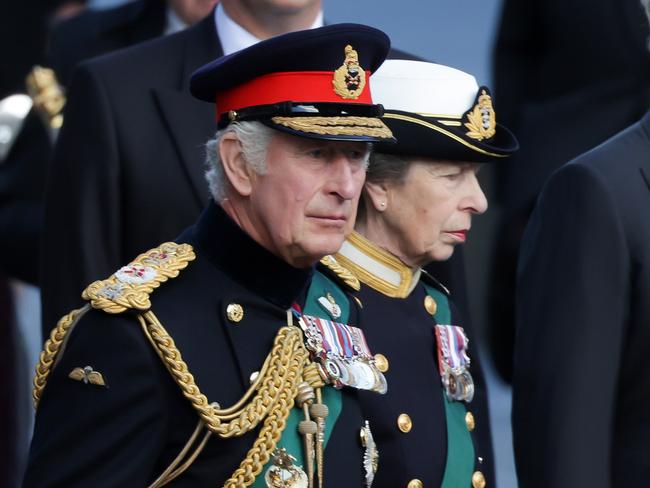
King Charles would also have had time to reflect on his new responsibilities as monarch, and to wonder whether he can do his mother proud in his new role and what the future of the monarchy might look like at the end of his reign.
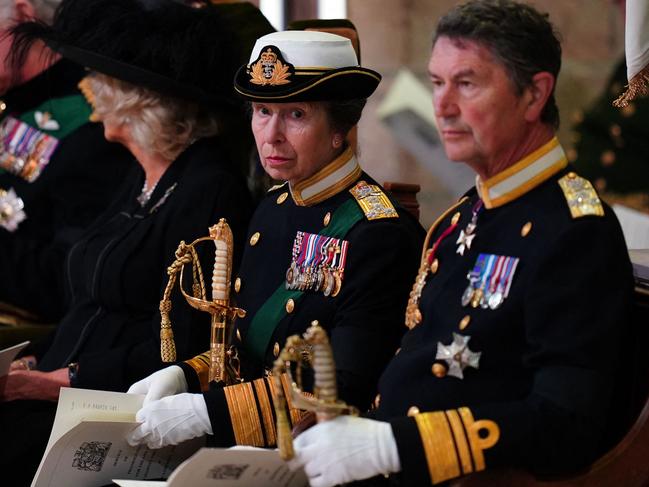
For Anne, the only daughter and the child who was most like her mother out of all the siblings – a hard working, selfless and non-nonsense – she has lost not just her mum, but a close confidante.
While Prince Edward, the youngest child who until recently had lived most of his adult life under the public radar, can take comfort in that he has not caused his mother the kind of strife his brothers have, with their broken marriages and indiscretions.
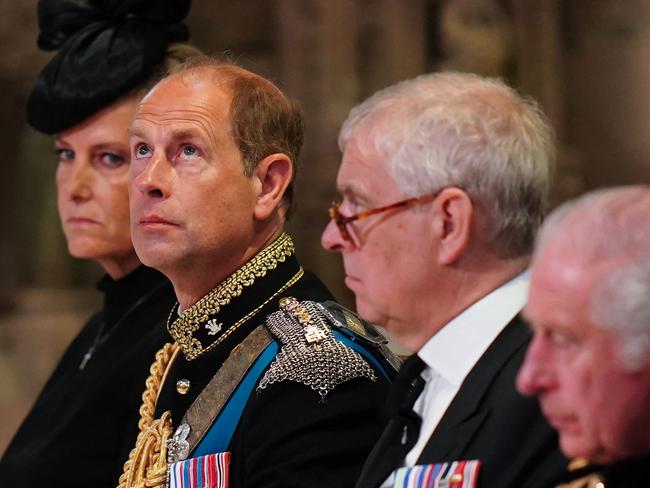
That his wife Sophie, the Countess of Wessex, was regarded as a second daughter by the Queen and his children also had a close bond with her, would also bring him some peace.
Perhaps the child with the most to lose from the Queen’s death is Prince Andrew, who was always reportedly her favourite. Perhaps in those minutes when he stood guard there might have been some regret that in the last months of her life his elderly mother had to deal with the fallout of his friendship with the disgraced paedophile billionaire financier Jeffrey Epstein and a sex scandal, along with his misjudged and embarrassing interview with Emily Maitlis.
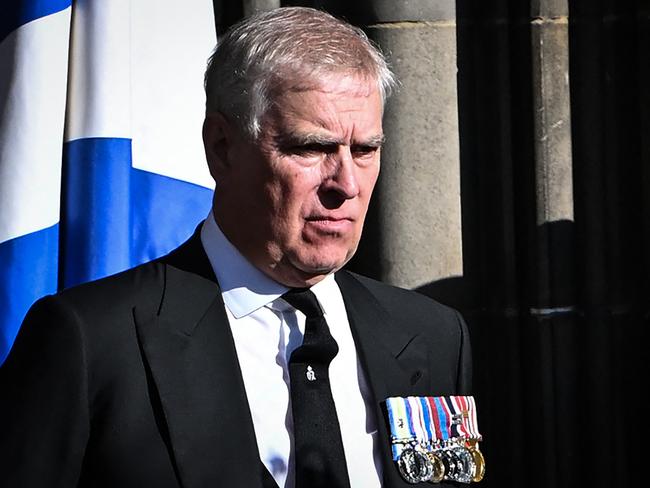
Earlier this year he settled out of court with sex assault accuser Virginia Guiffre. He has always denied any charges relating to Ms Guiffre.
Despite being his most fierce protector, the Queen was forced to strip her second son of his military titles and royal patronages in January, following the out of court settlement.
He lost all of his honorary military roles, including Colonel of the Grenadier Guards, and he gave up his HRH style.
Andrew, a former Royal Navy officer who served in the Falklands War, retained his rank as a Vice Admiral.
For most of this year Prince Andrew has largely been kept out of sight from the public.
Now as son of the Queen, he is back playing a central role during the official mourning period.




